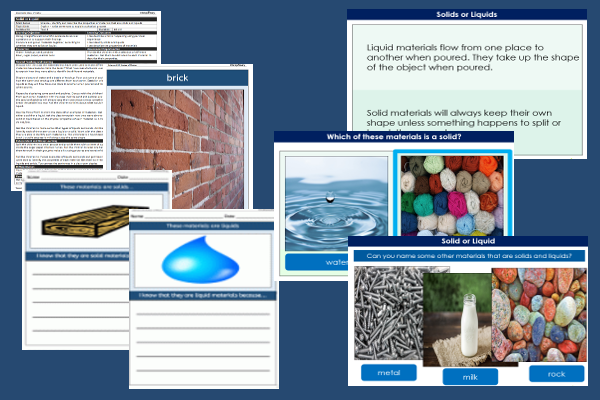Lesson One – Solid or Liquid

This science teaching pack for Key Stage Two gets the children to identify and describe the properties of different materials that can be classed as either solids or liquids based on their material properties.
The class can explain and record how they might be able to identify if a material is a solid or liquid by how it either retains or changes shape when moved.
Download this teaching pack including a lesson plan, classroom activities and an interactive presentation to teach the children to identify and describe the properties of different materials that can be classed as either solids or liquids based on their material properties
Activities in this teaching pack include display posters to identify and describe materials matching different states of matter and templates to explain how and why certain materials can be classified as either solid or liquid materials using illustrations and sentences.
The interactive presentation gets the children to explain how they can identify whether a material is a solid or liquid based on their material properties.
This lesson is part of a science scheme of work to get the children to explore, test and explain how a range of different materials can change their states between solids, liquids and gases by conducting a series of fair tests. There are teaching activities for shared learning, differentiated worksheets to support independent learning and interactive presentations to introduce concepts and key skills.
-

Theme Park Visit
Practise identifying and calculating the timing and duration of rides and events when visiting a theme park on a special family trip
-

Family Holiday Trips
Identify and record how to compose and publish recounts using adverbials of time and place to describe family holidays to different places in the world
-

Money Multiplication
Explain and model how to use standard written calculation methods to multiply money amounts in pounds and pence when solving number problems
-

Sport Teams
Explain and model how to use brackets and dashes to add extra information to sentences describing how to play sports and games as part of a team
